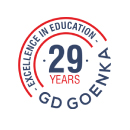The Extended Essay Journey – Fostering a life beyond the classroom
Pranab Sharma, Economics facilitator and Extended essay co-ordinator
The Extended Essay(EE) is one of the three core elements of the much-coveted IB Diploma Programme that incorporates all the Approaches to Learning (ATL) skills such as Thinking, Self-management, Research, Communication and Social that prepare the students for a life outside the classroom and what could be a better way to have this experience being in the nurturing and supporting environment of any IB school.
To explore “whether to walk in rain or run in rain?” might seem simple to answer but pondering on it for few minutes, one will realize the complexity of this question. Getting down to sources to gather data for an original work would land one in another dilemma. No matter what you do, there is someone out there you have already done that. To arrive at a research topic is another research drill that demands rigour, perseverance, resilience, and purely academic approach that often comes across as an overwhelming experience to the students, parents, and the teachers alike at the other end of the bell curve if not fall prey to procrastination. It is also the manifestation of efforts spanning close to two years that is purely academic of very high standard and gives an immense satisfaction out of the product at the end.
The key to success in the IBDP EE journey lies in the adage, “Catch Them Young” that is to be realized at the primary level. At GD Goenka World School(GDGWS), it has been a persistent endeavor etched in the pedagogy across the GDGWS curricula ranging from PYP, IGCSE, Cambridge AS and A level, and IBDP that engage the students in a staggered manner to allow them to work on the teacher-directed inquiry followed by case-based inquiry approaches. The students here on identify small nonfiction and fiction extracts and interpret it using their subject knowledge, terminologies, and methodologies. This scaffolds them for higher order thinking skills and tasks once they graduate to the middle school and onwards. The students pick up general topics of their interest and conduct short term and medium-term research which equips them with research skills that follows a defined methodology so that they are directed to experiential research tasks through a play-way method. Experience and studies reveal that ‘learning by doing’ and communicating the work verbally and non verbally in a shared in person or virtual platform leads to creation and amalgamation of ‘Out of the box’ ideas thereby honing them for much extensive research tasks.
IBO envisages learning to not be limited by the scope of the Diploma programme but the students strive for lifelong learning irrespective of any curriculum or organization they study extending to their work life as well. A triumvirate consisting of the school leadership, librarian, and teacher-supervisors play a pivotal role as they facilitate the learning and research by providing a structured delivery of the academic support, research and referencing support along with fostering a connect with the students. These elements do cater to the differentiated learning needs of the students as they all do not learn alike that has to be respected by the school community. The pastoral care, the counselor and sound parent teacher synergy provide the students the much needed emotional, academic and psychological support but gives them the confidence to articulate their issues and ideas effectively.
The EE journey Is therefore a one-off experience that provides the entire school community to make children lifelong learners by developing an array of modern day skills which provides the depth and breadth of learning any discipline with ease.
Experience also reveals that more often the students across the curriculum focus more on ornamental aspects like formatting, presentation and so forth vis-a-vis meaningful analytical and critical thinking skills. These core skills also need to be developed right from a young age although in age-appropriate mini contexts. This is of greater significance as almost 50% of the EE marks is assessed for the critical thinking itself. There has been much research to understand and develop the metacognition skills of the students that adapts to the critical thinking ways is a part of life and plays a very significant role in making crucial decisions in life, for life.
Reflective thinking, another attribute is recorded formerly in the EE RPPF. This also gives an opportunity to the students to be reflective on their work, planning, execution and most importantly the failures. It is a skill that needs to be developed right from the classroom learning and permeates into any activity that a student undertakes. Being reflective helps any individual to not only learn from mistakes but also improvise the processes one dwells in.
The extended essay after all is a lifelong experience that IB Diploma Programme offers to students pursuing it which not only enhances learning but also leads to an all-round development of an individual. It offers students to pursue this task in any one of the many subjects with History to one’s surprise, being the most popular followed by English.
 Source: IBO provisional-statistical-bulletin-may-2021
Source: IBO provisional-statistical-bulletin-may-2021
The skills and approaches, if adapted meaningfully into the educational pedagogy right from the early age, it will no longer be dreaded by the students in IB Diploma. It is pertinent for schools to ideate the entire process across all the subjects and domains and uphold the essence of the wonderful Extended Essay journey. The most important thing is, love your EE. It is fun and it gives you a chance to explore the things you love.














